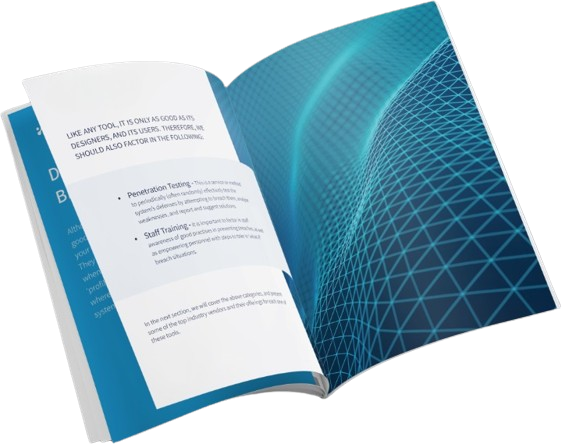As a business owner, you may not be aware of the intricate process involved in choosing the right commercial lender for your specific financial requirements. The decision you make regarding commercial lenders can profoundly impact the growth and sustainability of your business. With an array of options available, it’s crucial to understand the key factors that can make or break your lending experience.
From evaluating lender experience to securing reliable funding, each step in the process holds significant weight in determining the success of your business. So, let’s explore the essential considerations that will guide you towards choosing the perfect commercial lender to propel your business forward.
Key Takeaways
- Assess the business’s financial requirements and growth projections to determine the funding needs.
- Research and evaluate the reputation, track record, and customer reviews of potential lenders.
- Tailor the loan application to meet the specific requirements and expectations of the chosen lender.
- Access valuable resources, personalized consultation, and a streamlined application process to make informed financing decisions.
Understanding Your Funding Needs
When considering your funding needs, it’s essential to assess your business’s financial requirements with a clear understanding of your goals and growth projections. One crucial aspect is evaluating lender reputation. Research the potential lender’s track record, customer reviews, and industry standing. Understanding loan requirements is equally vital. Different lenders may have varying criteria and conditions for loan approval. By comprehensively understanding these requirements, you can tailor your loan application to meet the lender’s expectations, increasing your chances of approval.
To evaluate a lender’s reputation, start by researching their online presence. Look for customer reviews, ratings, and testimonials to gauge their reliability and customer satisfaction. Additionally, check industry forums and financial websites for any reported issues or complaints.
Understanding the loan requirements involves reviewing the lender’s eligibility criteria, credit score requirements, and documentation needs. Some lenders may prioritize certain industries or business sizes, so it’s crucial to align your business with a lender whose requirements match your profile.
Evaluating Lender Experience
When evaluating a commercial lender’s experience, it’s crucial to consider their track record and network of lenders.
A lender with years of experience and an extensive network of over 200 lenders may provide you with more options and increased likelihood of approval.
Expertise in matching businesses with the perfect funding solution is also indicative of a lender’s ability to meet your specific needs.
Lender’s Track Record
Evaluating a commercial lender’s track record requires assessing their years of lending experience, network of lenders, and their status as preferred lenders for increased likelihood of approval.
- Years of Lending Experience: Look for a lender with a proven track record and extensive experience in the commercial lending industry.
- Network of Lenders: A robust network of over 200 lenders can indicate strong industry connections and access to diverse funding options.
- Preferred Lenders Status: Preferred lenders often have streamlined processes and increased approval rates, which can be advantageous for your business.
- Expertise in Matching Businesses: Seek lenders with a reputation for effectively matching businesses with suitable funding solutions.
Evaluating these factors can provide insight into a lender’s reputation and credibility, helping you make an informed decision for your business’s financial needs.
Network of Lenders
Assessing a commercial lender’s track record involves considering their network of lenders, which can provide valuable insight into their industry connections and access to diverse funding options.
A diverse lender network offers numerous benefits, including increased access to various financing solutions and a higher likelihood of approval. When evaluating lender reputation, it’s essential to assess the depth and breadth of their network, as this can directly impact the range of financing products available to your business.
A well-established network indicates the lender’s ability to leverage industry relationships and expertise to match businesses with suitable funding solutions. Additionally, a diverse lender network can provide you with access to specialized financing options tailored to your business’s unique needs.
Therefore, it’s crucial to prioritize a commercial lender with an extensive and diverse network of lending partners.
Personalized Consultation Benefits
A personalized consultation provides tailored guidance and expert support to help your business find the perfect loan solution. When understanding your funding requirements, a personalized consultation can be invaluable.
Here are the benefits of personalized consultation:
- Tailored Guidance: A consultation allows for a deep understanding of your business’s unique funding needs, ensuring that the recommended solutions align with your specific requirements.
- Expert Support: You receive expert advice on financing options, leveraging the lender’s expertise to make informed decisions that benefit your business in the long run.
- Personalized Service: A personalized consultation offers white-glove service, ensuring that your business receives the attention and support it deserves throughout the loan application process.
- Access to Experienced Professionals: By engaging in a personalized consultation, you gain access to a team of experienced professionals who can provide valuable insights and assistance in finding the perfect loan solution.
A personalized consultation not only helps in evaluating lender expertise but also ensures that your business’s funding requirements are fully understood and addressed. It goes beyond a standard loan application process, offering you the opportunity to access tailored guidance, expert support, and personalized service. This level of attention and expertise can significantly enhance your business’s ability to secure the right financing solution.
Accessing Valuable Resources
How can your business benefit from accessing a wide range of valuable resources tailored to your financing needs?
Accessing valuable resources can provide your business with the necessary tools and information to make informed financing decisions. By having access to a variety of funding options, you can compare and evaluate each option to determine the best fit for your specific needs. These valuable resources include knowledge about different funding solutions, such as a fast and simple application process, secure and reliable funding options, and a range of financing products available.
Additionally, having access to an extensive network of over 200 lenders can increase the likelihood of finding the perfect funding solution for your business.
Moreover, personalized consultation and support from experienced professionals can further enhance your understanding of the available funding options. This includes white-glove service, personalized guidance, and expert advice on financing options, providing you with the necessary support throughout the application process.
Furthermore, valuable resources such as free eBooks, information on financing options, and tips for obtaining business capital can equip you with the knowledge needed to navigate the complexities of commercial lending.
Accessing these valuable resources not only ensures that you’re well-informed about the funding options available but also enables you to make strategic decisions that align with your business’s financing needs. This knowledge, expertise, and access to resources can ultimately contribute to the success and growth of your business.
Streamlined Application Process
To ensure a smooth and efficient commercial lending process, it’s essential to focus on streamlining the application process to meet the specific needs of your business.
When considering the streamlined application process, it’s important to first understand the loan requirements of your business. This involves assessing the amount of funding needed, the purpose of the loan, and the repayment terms that align with your business’s financial capabilities. Additionally, comparing interest rates from different commercial lenders is crucial. This will help you identify the most competitive and favorable financing options available to your business.
Once you have a clear understanding of your loan requirements and have compared interest rates, the next step is to gather the necessary documentation for the application process. Streamlining this phase involves preparing financial statements, tax returns, business plans, and any other relevant documents in advance. This proactive approach can expedite the application process and demonstrate your business’s readiness and organization to potential lenders.
Furthermore, leveraging technology can streamline the application process. Many commercial lenders offer online platforms or digital applications, allowing for the quick submission of required documentation and accelerating the approval process. Embracing these digital solutions can enhance the efficiency and convenience of applying for commercial loans.
Lastly, seeking guidance from experienced professionals can streamline the application process. Working with financial advisors or loan consultants can provide valuable insights and support throughout the application, ensuring that your business presents a strong and compelling case to potential lenders.
Comparing Financing Options
When comparing financing options, it’s important to carefully analyze the loan terms, interest rates, and funding timelines.
Consider the length of the loan and how it aligns with your business’s financial goals.
Next, delve into the various interest rates offered by different lenders and understand the impact they’ll have on your overall repayment.
Loan Term Comparison
When comparing financing options for commercial loans, it’s essential to carefully consider the loan terms to determine the most suitable option for your business needs. In order to make an informed decision, it’s crucial to conduct a thorough loan term analysis and interest rate comparison.
To effectively compare loan terms, consider the following factors:
- Loan duration and repayment schedule
- Total interest costs over the loan term
- Flexibility in adjusting payment amounts
- Potential penalties for early repayment
Interest Rate Analysis
As you assess the loan term comparison for commercial loans, it becomes imperative to delve into the intricacies of interest rate analysis when comparing financing options for your business.
The interest rate comparison is a critical aspect of evaluating financing options, as it directly impacts the cost of borrowing. Understanding the impact of interest rates on your business’s financial health is essential for making informed decisions.
By comparing the interest rates offered by different commercial lenders, you can determine the total amount you’ll pay over the life of the loan. Additionally, analyzing the impact of varying interest rates on your monthly payments and overall cash flow can help you choose the most suitable financing option for your business.
Therefore, conducting a thorough interest rate analysis is crucial in selecting the right commercial loan for your business.
Funding Timeline Review
To compare financing options and understand the funding timeline, it’s essential to assess the various stages involved in the application and approval process. When comparing funding timelines, consider the following key factors:
- Application process efficiency
- Time to approval for qualified businesses
- Funding security and reliability
- Availability of a range of financing products
Securing funding options involves evaluating the time it takes for each lender to process applications and provide the necessary capital.
Understanding the funding timeline comparison will help you make an informed decision based on your business needs and financial requirements. By carefully examining these aspects, you can select the most suitable commercial lender to support your business goals effectively.
Importance of Lender Network
The strength of a lender network lies in its ability to connect businesses with a wide array of financing options from a diverse pool of lending institutions, ensuring a higher likelihood of securing the right funding solution for your specific needs. When evaluating lender reputation, a diverse lender network provides access to a range of reputable lending institutions, each with its own unique lending criteria and specialties. This can be particularly beneficial for businesses with specific financing requirements or those operating in niche industries.
A diverse lender network also offers the benefit of increased flexibility. Different lenders may have varying risk appetites, loan terms, and interest rates, allowing you to explore a wider spectrum of financing options to find the most suitable match for your business. Additionally, having access to multiple lenders increases the chances of securing favorable terms and competitive rates, ultimately saving you both time and money.
Moreover, a diverse lender network can cater to businesses of different sizes and financial standings. Whether your business is a startup, a small to medium-sized enterprise, or a larger corporation, having access to a broad network of lenders can present tailored funding solutions that align with your specific business profile and financial requirements.
Expert Advice for Business Growth
Gain valuable insights and guidance from experienced professionals to strategically propel your business towards sustainable growth. When seeking expert advice for business growth, consider the following key aspects to ensure that you’re evaluating lender credibility and maximizing loan eligibility:
- Consultation with Lending Experts: Seek personalized consultation and support from experienced professionals who can provide tailored guidance for your business. They can offer expert advice on financing options, assist in finding the perfect loan solution, and provide ongoing support throughout the application process.
- Access to Funding Solutions: Look for commercial lenders that offer a range of financing products and provide quick approval for qualified businesses. Access to secure and reliable funding options, along with a fast and simple application process, can ensure that you have the necessary resources to support your business growth.
- Extensive Network and Experience: Choose a commercial lender with years of lending experience and an extensive network of lenders. Working with a lender who has a wide network can increase the likelihood of approval and provide access to a diverse set of funding solutions.
- Valuable Resources and Information: Consider lenders who offer resources and information to help you make informed decisions about financing options. Access to resources such as free eBooks, tips for obtaining business capital, and strategies for business and personal growth can be invaluable in driving your business forward.
Securing Reliable Funding
When considering securing reliable funding for your business, it’s important to carefully compare the various funding options available.
Assessing the criteria for lender selection is critical in ensuring that you secure the most suitable funding for your business’s needs.
Understanding the specific features and terms of different funding options will empower you to make a well-informed decision.
Funding Options Comparison
To secure reliable funding for your business, it’s crucial to compare the various financing options available from commercial lenders. When comparing funding options, consider the following:
- Interest rates and fees comparison
- Loan term and repayment flexibility
- Funding amount and eligibility requirements
- Additional benefits or services offered by the lender
Comparing interest rates and fees will help you understand the cost of borrowing and choose the most cost-effective option.
Evaluating loan term and repayment flexibility is important to ensure that the funding aligns with your business’s cash flow.
Understanding the funding amount and eligibility requirements will help you identify lenders that can meet your business’s financial needs.
Additionally, assessing any additional benefits or services offered by the lender can provide added value to your funding solution.
Lender Selection Criteria
When selecting a commercial lender to secure reliable funding for your business, it’s crucial to carefully assess their lending criteria and commitment to meeting your financial needs.
Start by evaluating the lender’s reputation in the industry. Look for a lender with a proven track record of providing secure and reliable funding options.
Additionally, consider the benefits of personalized consultation. A lender that offers personalized guidance and support can help tailor a funding solution that aligns with your specific business needs. This white-glove service can provide expert advice on financing options and support throughout the application process.
Business Support and Guidance
Amidst the array of financing products and personalized consultation services offered, you can access comprehensive business support and guidance through the experienced professionals and extensive resources provided by the commercial lender.
When evaluating lender credibility, it’s crucial to consider the level of business support and guidance they offer. Here’s what you can expect:
- White-glove service and consultation: You’ll receive personalized guidance for your business, ensuring that the financing solution aligns with your specific needs.
- Access to a team of experienced professionals: Expert advice on financing options and support throughout the application process will be readily available to assist you in making informed decisions.
- Free eBook available for download: A valuable resource for business owners, offering information on financing options, tips for obtaining business capital, and strategies for business and personal growth.
- Personalized guidance for your business: You’ll receive assistance in finding the perfect loan solution, ensuring that it meets your unique business requirements.
Frequently Asked Questions
What Are the Common Mistakes to Avoid When Choosing a Commercial Lender?
When choosing a commercial lender, it’s crucial to avoid pitfalls by selecting wisely. Look for transparent terms, including interest rates and fees. Ensure the lender has experience in your industry and offers a range of financing products.
Avoid rushing into agreements without understanding the terms thoroughly. Research the lender’s reputation and customer service. Seek personalized consultation and support to navigate the process effectively.
How Can a Business Owner Effectively Negotiate Terms With a Commercial Lender?
To effectively negotiate terms with a commercial lender, start by understanding their requirements and expectations. Craft a strong business case, highlighting your company’s financial stability and growth potential.
Present a clear repayment plan and be prepared to discuss collateral options. Negotiation strategies should focus on finding a win-win solution for both parties. Emphasize the value your business brings to the table and be open to compromise on certain terms to secure favorable financing.
What Are Some Alternative Financing Options to Consider Aside From Traditional Commercial Lenders?
When considering alternative financing options, it’s interesting to note that crowdfunding options have gained momentum, with over $34 billion raised globally in 2020. This avenue allows for diverse funding sources and community involvement.
Additionally, alternative financing may include angel investors, venture capital, or even peer-to-peer lending platforms. Each option has its unique advantages and considerations, offering business owners the opportunity to explore non-traditional avenues for securing capital.
What Are the Key Factors to Consider When Determining the Right Amount of Funding Needed for My Business?
When determining the funding amount for your business, it’s crucial to engage in thorough financial planning. Assess the risks and allocate capital strategically.
Consider the specific needs of your business, such as operational expenses, expansion, or equipment upgrades. Factor in potential growth and future requirements.
How Can a Business Owner Build and Maintain a Strong Relationship With Their Commercial Lender for Future Financial Needs?
Building trust with your commercial lender is crucial for long-term commitment. Consistent communication, transparency, and meeting financial obligations are key.
Transparency in your business operations and financials builds credibility. Regular updates on your business’s performance and financial health help strengthen the relationship.
Showing commitment to repaying debts and meeting financial obligations will indicate to your lender that you’re a reliable partner for future financial needs.
Final Thoughts
So, now that you have all the information and guidance you need to choose the right commercial lender, it’s time to make your decision.
Remember, the key to success is finding a lender who can support your business with reliable funding and expert advice. With so many options out there, it’s almost like finding a needle in a haystack. But don’t worry, with the right lender by your side, you’ll be on the fast track to business success in no time.




